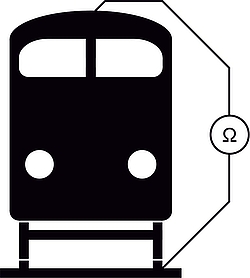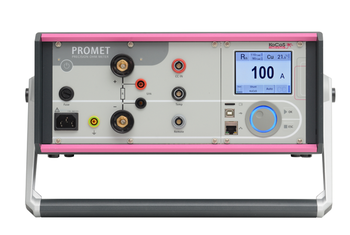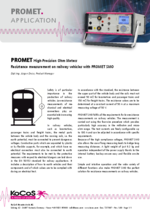Safety is of particular importance in the production of railway vehicles. Low-resistance measurements of mechanical and electrical connections play an essential role in ensuring high quality.
In railway vehicles, such as locomotives, passenger trains and freight trains, the metal parts between the vehicle body and the running rails, i.e. the earth potential, must be connected to prevent dangerous voltages.

Conductive parts which are separated by plastic or by flexible supports, for example, and which have no electrical connection must also be connected to earth potential.
The requirements to be met by the protective measures with respect to electrical dangers are laid down in the EN 50153 standard for railway applications.
It includes a description of how to earth vehicles and their components and of which values are to be complied with during an electrical test.
In accordance with the standard, the resistance between the upper part of the vehicle body and the rails must not exceed 50 mΩ for locomotives and passenger trains and 150 mΩ for freight trains. The resistance values are to be determined at a constant current of 50 A at a maximum measuring voltage of 50 V.
PROMET SMO fulfils all the requirements for low-resistance measurements on railway vehicles. The measurement is carried out using the four-wire procedure which provides particularly high accuracy in the milli-ohm and micro-ohm range. The test currents are freely configurable up to 100 A and can be adjusted in accordance with specific requirements.
Because of the high compliance voltages, PROMET SMO also allows the use of long measuring leads to bridge long measuring distances. A light weight of just 9.3 kg and operation independent of the power supply thanks to the internal battery backup ensure easy and flexible on-site use.
Simple and intuitive operation and the wide variety of different functions also make PROMET SMO the perfect solution for resistance measurements on railway vehicles.

